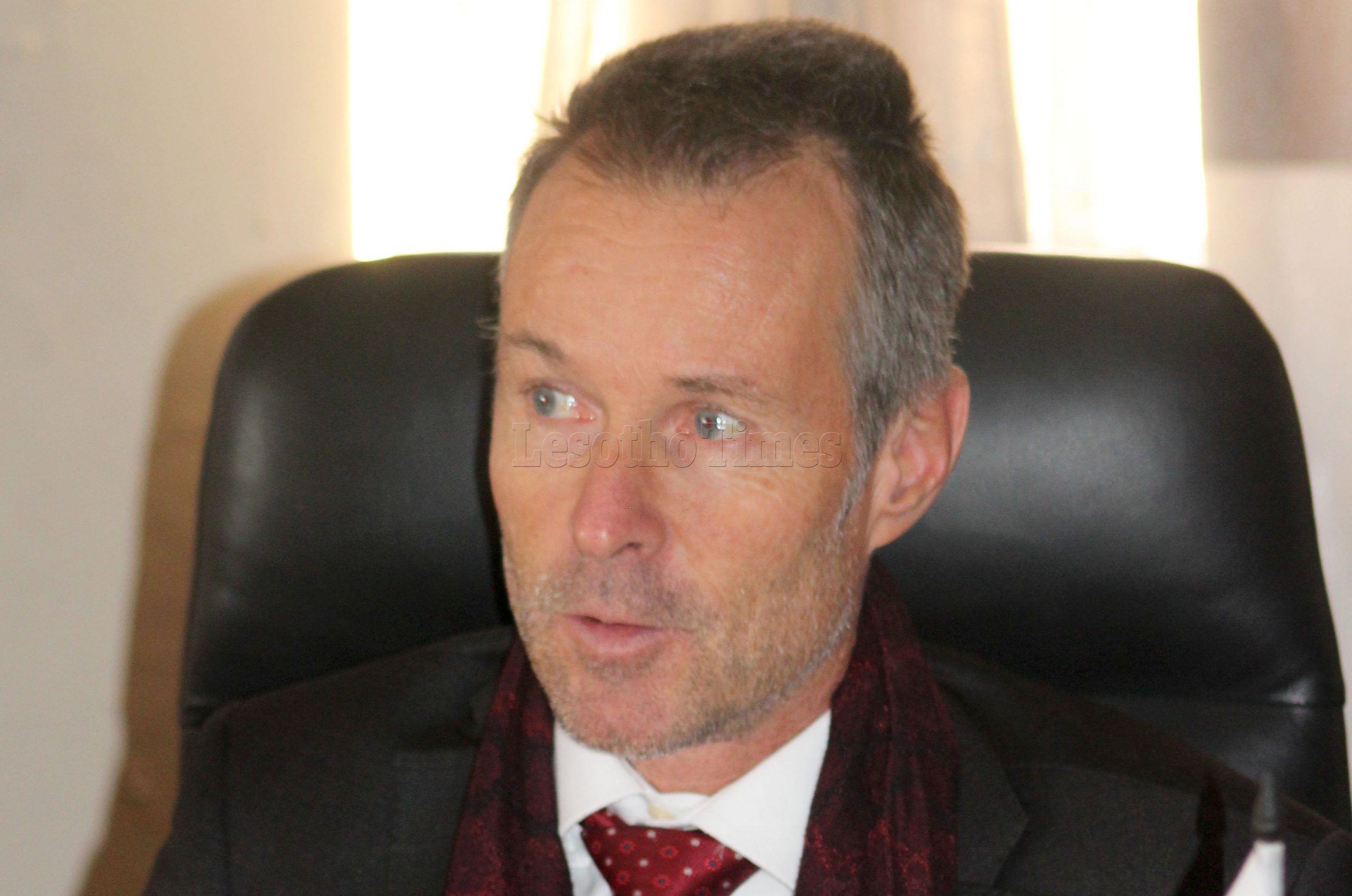Staff Reporter
THE European Union (EU) has availed €2 million funding for the National Reforms Authority (NRA) to enable it to carry out its mandate of coordinating and spearheading the implementation of the much-delayed multi-sector reforms.
The fund was announced this week by the EU Ambassador to Lesotho, Christian Manahl, in an interview with the Lesotho Times in Maseru. The constitutional, security sector, media, judiciary and governance reforms were recommended by the Southern African Development Community (SADC) as part of efforts of achieving lasting peace and stability in Lesotho.
The country has already missed the May 2019 SADC deadline for the full implementation of constitutional and security sector reforms with the only tangible achievements being the district consultations to solicit the ordinary people’s views on what should go into the reforms, the holding of the multi-stakeholder dialogue and National Leaders’ Forum to discuss the inputs from the country’s districts. There was also the enactment of the National Reforms Authority Act in 2019 which provides for the establishment of the National Reforms Authority to oversee the implementation of the reforms.
Chronicling the EU’s contribution to Lesotho’s socio-economic development, Dr Manahl told this publication that the EU funded the meetings towards the implementation of the reforms in 2019 and they had “now set aside €2 million for the National Reforms Authority”.
“The reforms are a project which is dear to our hearts. The reforms have been talked about for a long time in Lesotho and there has been considerable progress towards implementation over the last couple of years. The reforms dialogue, which is the first phase been successfully completed.
“We are now moving to the implementation and believe that this is going to be a transformative process for Lesotho which will provide for more stable political foundations which are of course important in order to attract investments, improve the economic situation and to create employment which is perhaps the biggest single challenge that Lesotho faces.
“Getting the private economy going and reducing unemployment in important …and to achieve that, it is necessary to have political stability first. We hope that the reforms will help Lesotho get there.
In addition to funding the reforms, the EU also gave the World Food Programme (WFP) €1, 5 million to provide emergency food aid to at least 22 000 Basotho in need of food assistance in the country.
Dr Manahl said the money was availed in response to a flash appeal for US$34 million which was launched two months ago by the United Nations to urgently support 260 000 food insecure Basotho with life-saving interventions up until April 2020.
“We are happy to assist the government and UN agencies in addressing the immediate emergency but we also contribute to overcoming recurrent food insecurity through long-term resilience building,” said Dr Manahl.
“Last year, a national drought emergency was declared, and a flash appeal was made to support of the government-led Drought Response and Resilience Plan. The flash appeal requires €74 million (M 1, 2 billion) to target 261 000 people in 10 districts between November 2019 and April 2020”.
WFP Country Director, Mary Njoroge, said the EU’s donation will enable the WFP to provide food assistance, agricultural as well as water and sanitation support to 22 000 families in four of the country’s 10 districts. The four districts are Mohale’s Hoek, Mafeteng, Quthing and Qacha’s Nek.
Ms Njoroge said the WFP would collaborate with the government through the Disaster Management Authority (DMA) , the Ministry of Social Development and local councils to identify the most vulnerable households who will be eligible for assistance in the form of groceries procured from local retailers and monthly mobile cash transfers to enable them to cater for other needs.



